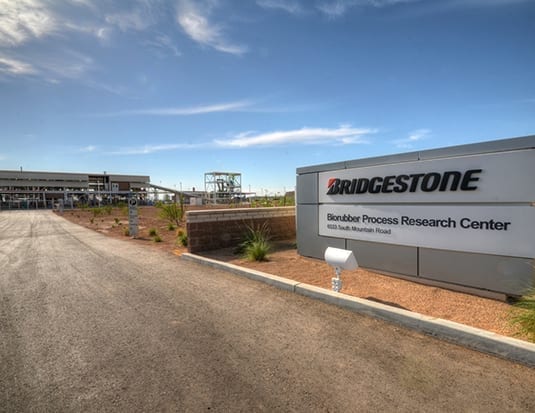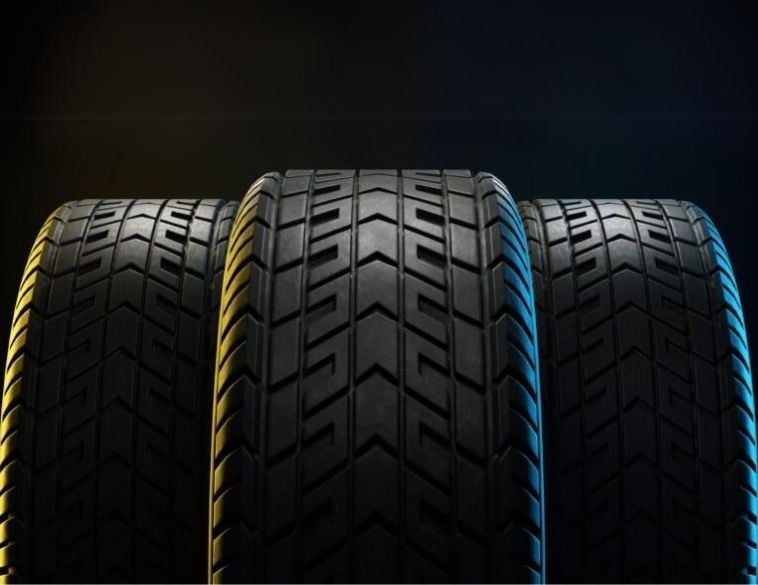Leading academic partners named in support of Bridgestone’s continued guayule research.
Bridgestone Americas has announced it is the key industrial partner in a public-private consortium that is the recipient of a five-year grant from September 2017 to August 2022 worth $15 million awarded from the U.S. Department of Agriculture (USDA), National Institute for Food and Agriculture (NIFA). The funding aims to support the further development of a domestic source of natural rubber from guayule.
Bridgestone, along with researchers from The University of Arizona, Colorado School of Mines, Colorado State University, New Mexico State University and the USDA Agricultural Research Service, received this grant as part of NIFA’s Agriculture and Food Research Initiative Coordinated Agricultural Project Program. The program’s focus is on continuing research and development of new sources of natural rubber which Bridgestone has been engaged in for decades.
Bridgestone’s leadership position in guayule agriculture and rubber and coproduct extraction technologies was a major contributor to the selection for the highly competitive grant. Bridgestone has a long history with guayule research and development dating back to the USDA and Department of Defense’s efforts in the early 1980s. In 2012, Bridgestone invested in its Biorubber Process Research Center in Mesa, Arizona, and a 300-acre research facility for plant breeding and agronomy in Eloy, Arizona, as well as recruited grower participation for feedstock (crop) production.
“We are extremely excited to work with these universities and the USDA as we reinforce our efforts to develop a new, sustainable, domestic source of natural rubber using guayule,” said Nizar Trigui, Chief Technology Officer, Bridgestone Americas. “This research aligns with our corporate commitment to helping ensure a healthy environment for current and future generations.”
Guayule is a drought and heat-tolerant crop that produces natural rubber almost identical to natural rubber harvested from hevea rubber trees in Southeast Asia, making it a valuable source for tire-grade rubber in commercial applications. Scale-up to profitable production is the goal of the grant that requires feedstock improvements and expansion of cultivation; feedstock production in a sustainable manner; understanding of how processing guayule to extract natural rubber and economically valuable co-products is affected by variable feedstock quality; and enhancement of transportation, techno-economic, and sustainability models to provide a clear path to commercialization.
Bridgestone is working to realize a sustainable natural rubber supply chain. The industry has acknowledged managing the procurement process of natural rubber around the world as critical, but it is equally important to focus on realizing a sustainable and stable supply of natural rubber or alternative materials, developing long-term productivity improvements, and applying best-in-class technology for natural rubber production. With this grant, Bridgestone is getting excellent support to achieve its long-term environmental goal of developing a new, domestic and commercially viable source for natural rubber.
The Bridgestone Group’s global corporate social responsibility commitment, “Our Way to Serve,” reflects the company’s longstanding philosophy of Serving Society with Superior Quality and its recognition that the best companies not only perform for their stake holders but also contribute to a better world. Guided by “Our Way to Serve,” Bridgestone recently announced a new Global Sustainable Procurement Policy to help identify and evaluate qualified suppliers, promote best practices and serve as a communication and improvement tool for the industry. The policy applies to all suppliers and all purchased materials and services, including natural rubber, and aligns with Bridgestone’s goal of using 100 percent sustainable materials by 2050.



